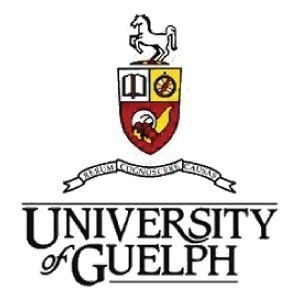Photos of university / #uofgadmission
The Bachelor of Science in Theoretical Physics at the University of Guelph offers students a comprehensive understanding of the fundamental principles governing the universe. This program is designed for individuals who are passionate about exploring the underlying laws of nature through mathematical models and theoretical frameworks. Students will engage with a strong foundation in classical mechanics, electromagnetism, quantum mechanics, and statistical physics, alongside advanced topics such as particle physics, cosmology, and condensed matter physics. The curriculum emphasizes critical thinking, problem-solving skills, and the ability to develop complex theoretical models, preparing graduates for a wide range of careers in academia, research institutions, and industry.
Throughout the program, students will have access to state-of-the-art laboratories and computational resources, enabling them to conduct cutting-edge research and simulations. The program fosters an active learning environment, encouraging students to participate in seminars, workshops, and collaborations with faculty members who are actively engaged in innovative research projects. In addition to coursework, students are encouraged to undertake research internships and independent study projects to deepen their understanding of current issues in theoretical physics. The interdisciplinary nature of the program also allows students to explore related fields, such as mathematics, computer science, and engineering, broadening their academic and professional horizons.
Graduates of the BSc in Theoretical Physics at the University of Guelph are well-equipped for graduate studies or employment in scientific research, data analysis, software development, and technological innovation. The program aims to develop not only a deep understanding of physical laws but also analytical skills, technical expertise, and a scientific mindset that is valuable across many diverse fields. The University of Guelph’s dedicated faculty members and robust research environment ensure students receive a high-quality education that prepares them for future scientific challenges and opportunities in the realm of theoretical physics.
The Theoretical Physics undergraduate program at the University of Guelph offers students an in-depth exploration of the fundamental principles governing the universe. Designed to cultivate a robust understanding of physical laws, the program emphasizes analytical skills, mathematical rigor, and theoretical modeling. Students begin their academic journey with foundational courses in classical mechanics, electromagnetism, and modern physics, establishing a solid base for more advanced topics. As they progress, they delve into quantum mechanics, statistical mechanics, solid state physics, and relativity, gaining comprehensive knowledge of both classical and quantum theories.
The curriculum encourages students to develop their problem-solving abilities through rigorous coursework, laboratory experiments, and research projects. Specialized courses in fields such as particle physics, cosmology, and mathematical physics allow students to explore particular areas of interest in depth. The program also promotes interdisciplinary learning, integrating concepts from mathematics, computer science, and engineering to enrich students' understanding and application of physical theories.
Research plays a vital role in the Theoretical Physics program at Guelph. Under the guidance of experienced faculty members, students have opportunities to participate in cutting-edge research projects, attend seminars, and present their findings. This hands-on experience equips graduates with the skills required for careers in academia, research institutions, and industry, where analytical and quantitative expertise is highly valued.
In addition to academic excellence, the program emphasizes the development of critical thinking, scientific communication, and collaborative skills. Students are encouraged to engage in seminars, workshops, and conferences that foster intellectual growth and networking. The program prepares graduates for opportunities in graduate studies or directly entering professional fields related to physics, engineering, data analysis, and technology development.
Overall, the Theoretical Physics program at the University of Guelph is committed to providing a comprehensive education that combines theoretical understanding with practical application, ensuring students are well-equipped for the challenges and opportunities of a career in physics and related sciences.
The Bachelor of Science in Theoretical Physics at the University of Guelph requires students to complete a comprehensive curriculum designed to provide a strong foundation in physics principles, mathematical methods, and computational techniques. Students must fulfill their general education requirements, which include courses in humanities, social sciences, and communication skills, ensuring a well-rounded academic experience. The core physics courses involve classical mechanics, electromagnetism, thermodynamics, quantum mechanics, and laboratory work, developing both theoretical understanding and practical skills. In addition, students are expected to undertake advanced mathematics courses such as calculus, linear algebra, differential equations, and mathematical physics, essential for modeling and solving complex physical problems. Elective courses allow students to explore specialized areas like astrophysics, condensed matter physics, or nuclear physics, fostering research interests and interdisciplinary knowledge. Practical laboratory courses emphasize experimental techniques, data analysis, and scientific communication, preparing students for research or industry roles. The program often includes opportunities for undergraduate research projects, internships, or co-op placements, providing real-world experience and professional development. To graduate, students must accumulate a specified number of credits, maintain a minimum academic standing, and complete a capstone project or thesis in a selected area of theoretical physics. The program promotes analytical thinking, problem-solving skills, and quantitative reasoning crucial for careers in academia, research, technology, or education. Faculty members involved in teaching and research are engaged in cutting-edge developments in physics, fostering an academic environment that encourages inquiry and innovation. Overall, the Theoretical Physics program at the University of Guelph aims to cultivate innovative physicists equipped with both theoretical knowledge and practical skills to address complex scientific questions and contribute meaningful advancements in the field.
The University of Guelph offers a comprehensive financing plan for students enrolled in the Theoretical Physics undergraduate program. Tuition fees vary depending on the student's residency status, with domestic students paying approximately CAD 9,000 annually and international students approximately CAD 30,000 per year. Students are encouraged to explore various financial aid options including scholarships, bursaries, and grants to help offset the costs of their education. The university provides merit-based scholarships for high-achieving students, which are awarded automatically upon admission based on academic performance. Bursaries are also available for students demonstrating financial need, and applications are typically submitted through the university’s financial aid portal.
Additionally, on-campus work-study positions are available to students seeking part-time employment to support their studies. These positions are often related to research assistantships or administrative roles within the university, offering both income and valuable academic experience. The university’s Financial Services Office provides detailed guidance and counseling to assist students in navigating the financial aid application process, including federal and provincial student loans. Ontario students, for example, may qualify for OSAP (Ontario Student Assistance Program) loans and grants, which help cover tuition and living expenses.
International students are encouraged to seek external funding sources; however, the university also offers some international scholarships. Payment plans can be arranged, allowing students to split tuition payments into manageable installments throughout the academic year. The university emphasizes early financial planning and recommends students attend informational sessions and workshops designed to inform about available financial resources.
Furthermore, students are advised to consider alternative funding options such as private scholarships, sponsorships, or family support. The university also partners with various organizations and industries, providing potential internships or cooperative education (co-op) opportunities that may include stipends or stipendiary positions. In summary, while the cost of the Theoretical Physics program at Guelph can be significant, multiple financial support mechanisms are available to assist students, aiming to make their educational journey more affordable and accessible.
The Theoretical Physics program at the University of Guelph offers students an in-depth exploration of fundamental physical principles and mathematical frameworks that underpin our understanding of the universe. This program is designed for students who have a strong interest in advanced physics concepts, mathematics, and computational modeling. It aims to develop critical thinking, problem-solving skills, and a deep appreciation for the theoretical aspects of science. The curriculum covers a wide range of topics, including classical mechanics, quantum mechanics, relativity, statistical mechanics, and mathematical physics, providing students with a solid foundation in both theoretical concepts and their practical applications.
Students participating in this program have opportunities to engage with cutting-edge research, participate in seminars, and collaborate with faculty members who are experts in their fields. The program emphasizes the importance of analytical skills and encourages the use of computational tools to simulate physical systems and analyze complex data. Graduates of the Theoretical Physics program are well-equipped to pursue careers in academia, research institutions, or industry, or to continue their education through graduate studies in physics, engineering, or related disciplines. The University of Guelph provides a collaborative learning environment with access to modern laboratories and research resources, ensuring that students gain practical experience alongside theoretical knowledge. With a curriculum aligned with current scientific advancements, the program prepares students to contribute meaningfully to scientific innovation and discovery.

